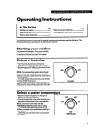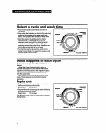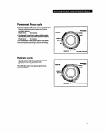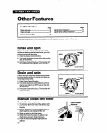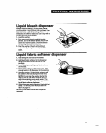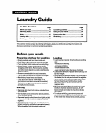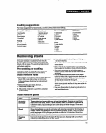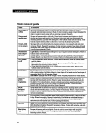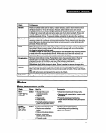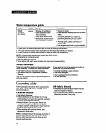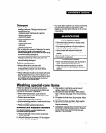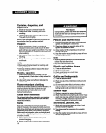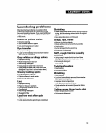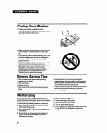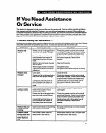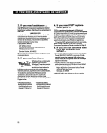
Stain
Mildew
Mustard
Palnt
To Remove
Wash in hottest water safe for fabric. If stain remains, soak in warm water and an
all-fabric bleach for 15 to 30 minutes. Rewash. (Old mildew stains are almost
impossible to remove. Mildew fungus destroys or weakens fabrics.) An afternative
to bleach is to treat with salt and lemon juice and dry in direct sunlight. Rinse and
rewash. Mildew may form if wet or damp laundry remains in your washer for
extended periods of time. To prevent mildew, promptly dry laundry after washing.
Treat immediately. Scrape off excess mustard. Sponge with a non-flammable dry
cleaning solvent or a prewash soil and stain remover. Rinse. Work liquid detergent
and a few drops of vinegar into stain. Rinse. If stain remains, apply 3% hydrogen
peroxide. Rinse and wash.
Water base:
Treat stains while still wet. These paints cannot be removed after they
have dried. Rinse in warm water to flush out paint, sponge with a non-flammable
dry cleaning solvent and then wash.
011 base:
Scrape off fresh paint. Sponge with a non-flammable dry cleaning solvent
or treat stain with recommended thinner. While stain is still wet with solvent, rub
liquid detergent into it. Wash with hottest water safe for fabric.
Peraplratlon
Remove stains before ironing. Perspiration stains may weaken fabrii. Wash or
sponge stain thoroughly with detergent and warm water. If perspiration has
changed the color of the fabric, use one of the following treatments:
Fresh stalns:
Apply ammonia to stain. Rinse. Launder to remove ammonia odor.
Old stalns:
Apply white vinegar to stain. Rinse. Launder to remove vinegar odor.
Scorch
Soft drlnks
Severe scorch cannot be removed. Wet stain with 3% hydrogen peroxide. Cover
with a dry cloth and press with an iron as hot as is safe for fabric. Rinse well. Wash.
OR
Wet with lemon juice and spread in the sun to dry. Wash.
Sponge immediately with cold water and alcohol. Heat and detergent may set stain.
Water
Water temperature guide
1 Wash
Rinse Use For
Comments
HOT
COLD l
Sturdy whites and
l
Gives best cleaning for heavy soils.
130°F (54°C) colorfast pastels
or above
l
Removes oils, perspiration, greasy soils
l
Diapers
and stains.
l
Heavy soils
l
Prevents graying and yellowing.
l
Work clothes
l
Helps remove wrinkles from permanent
l
Nom-tally soiled permanent
press.
press and synthetic items
WARM
XI”-1 10°F
(32”~44°C)
COLD
l
Light and moderate soils
l
Safe for most fabric finishes.
l
Dark or non-colorfast
l
Less fading and dye bleeding.
colors
l
Reduces wrinkling.
l
Knits and delicate fabrics
l
Nylons, polyesters,
acrylics, silks, woolens
l
Prewash, soak



